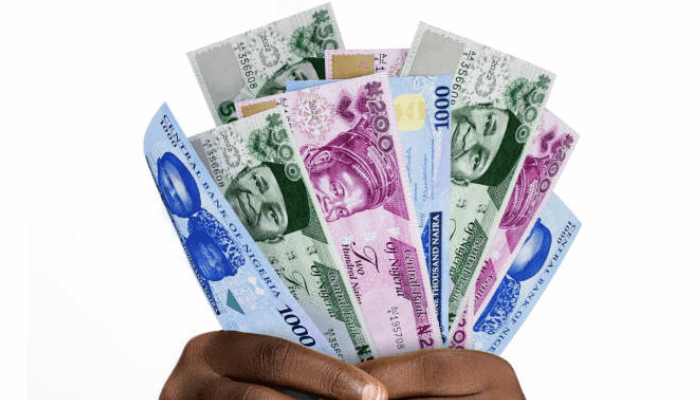Nigeria’s proposed budget for 2025, at N47.9 trillion, represents the largest in the country’s history in nominal terms.
However, due to the continuing depreciation of the naira, the budget is the lowest in dollar terms since 2018, dropping 22.27% from 2024’s $35.97 billion to $27.96 billion at the current exchange rate of N1,679 to $1.
The budget is based on optimistic assumptions of an oil price of $75 per barrel and daily oil production of 2 million barrels. However, the steep naira depreciation—driven by reforms such as the removal of the fuel subsidy and currency floatation—has significantly eroded the purchasing power of the budget, making it challenging to reach its full potential.
When calculated with a more favorable exchange rate of N1,400 to $1, the budget value rises to $34.14 billion. Still, it remains lower than the 2023 budget of N21.83 trillion ($50.11 billion at an exchange rate of N435.57 to $1).

Taiwo Oyedele, head of fiscal policy and tax reforms in Nigeria, emphasized the dire implications of the nation’s current low budget levels, noting that countries like Kenya and South Africa, with significantly smaller populations, have budgets much higher than Nigeria’s. He highlighted that Kenya’s 2024 budget stands at $32 billion and South Africa’s at $130 billion, both of which exceed Nigeria’s budget despite its much larger population.
Nigeria’s budget also falls far behind Egypt’s $82.89 billion for 2025 and Algeria’s $127.6 billion, with the latter’s population being just 46 million—only a fraction of Nigeria’s 230 million people.
Real Value Shrinks Amid High Inflation
Economists argue that while the 2025 budget appears massive in naira terms, it is the weakest in real purchasing power, with inflation and naira depreciation making a significant impact. Adeola Adenikinju, President of the Nigerian Economic Society, explained that despite the nominal increase, the budget’s real value, adjusted for inflation and currency depreciation, is the lowest since 2018.
Since President Bola Tinubu’s reforms, such as the currency float and subsidy removal, the naira has lost over 70% of its value. Critics argue that the government acted prematurely by floating the currency before securing sufficient dollar inflows, leading to a dramatic drop in the naira’s value, which has far-reaching consequences for the economy.
External Debt and Imports Highlight Vulnerabilities
Despite Nigeria’s budgetary shortfalls, the country remains heavily reliant on external debt and imports. From January to October 2023, Nigeria used half of its external inflows ($3.07 billion) for debt servicing, leaving the nation vulnerable to fluctuations in the global economy. Data shows that Nigeria spent $56 billion on imports while its exports totaled $60.7 billion, reflecting a net inflow of just $4.7 billion, much of which went to service external debt.
The necessity of comparing Nigeria’s budget in dollar terms, despite being a naira-denominated country, is underscored by the nation’s heavy dependence on external financing and imports. The growing external debt, currently standing at $41.59 billion, poses significant risks, as more than half of the country’s foreign earnings go toward servicing this debt.
Low Government Spending to GDP Ratio
Nigeria’s government expenditure to GDP ratio remains low compared to its African counterparts. The 2025 budget of N47.9 trillion represents just 20.52% of the country’s nominal GDP of N229.912 trillion. This is significantly lower than South Africa’s 33% of GDP, Egypt’s 25%, and Ghana’s 27.5%. This disparity highlights Nigeria’s relatively small allocation of national wealth toward government spending on public services, infrastructure, healthcare, and welfare.
Per Capita Expenditure Remains Minimal
Despite the nominal increase, Nigeria’s per capita expenditure for 2025 is just $148.39, which pales in comparison to global standards. For instance, California, with a population of 40 million, has a budget of nearly $300 billion for 2025, resulting in a per capita expenditure of $7,500. In contrast, Nigeria’s budget for its 230 million citizens translates to only $115.4 per person.
Outlook
The outlook for Nigeria’s 2025 budget remains bleak, with economists predicting that meaningful development and poverty alleviation may be out of reach unless reforms are enacted to boost revenue generation and reduce the nation’s reliance on debt. Nigeria’s shrinking budgetary allocation continues to be a significant challenge for the country’s efforts to tackle poverty and provide essential services to its citizens.




